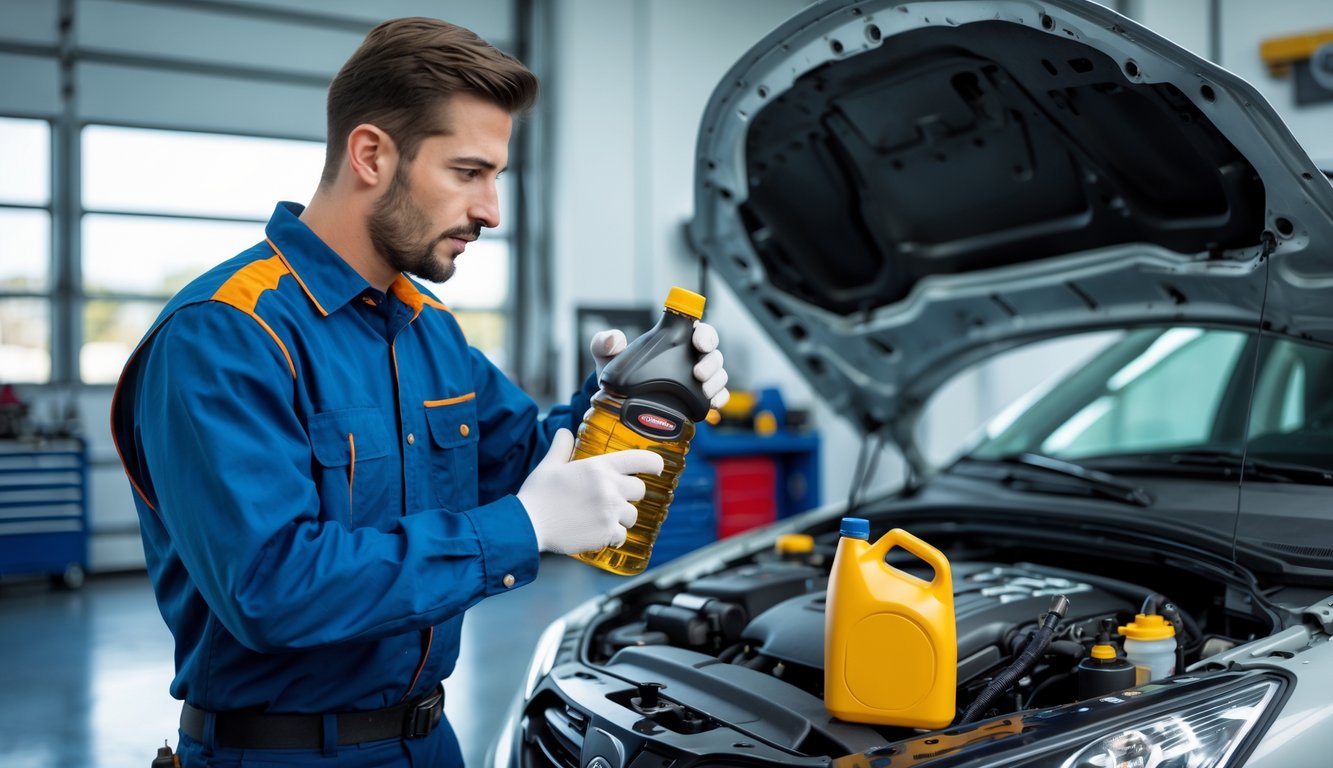
Common Myths That Waste Your Money
People love clinging to weird car maintenance myths. Every year, I see piles of receipts from oil changes nobody needed, or bottles of “special blend” oil stashed in trunks like a sad collection of broken dreams.
The 3,000-Mile Oil Change Myth
You ever spot those faded stickers on windshields—“Change after 3,000 miles!”—like some sacred law from the Stone Age? It’s hilarious. Engines and oils have changed, but apparently, sticker printers haven’t. Industry data and every mechanic under 60 agree: 5,000–10,000 miles is the new normal for most cars, sometimes even more.
I met a Toyota tech who just told people, “You’re throwing out good oil.” Meanwhile, folks are spending $70 every couple of months, ignoring the manual that quietly says “10,000.” My Honda? Nine thousand between changes, six years, still purring. No drama.
Nobody pushing the 3,000-mile thing ever talks about new detergents, better base oils, or oil life monitors. Read a modern car blog or just, I don’t know, open your glovebox and check the manual.
Mixing Oil Types Dangers
I’ve heard so many scary stories about mixing synthetic and conventional oil, you’d think it was the recipe for disaster. Honestly? I’ve done it by accident, on purpose, and out of boredom. Nothing happened. Maybe a tiny drop in performance, if that, but no explosions or check engine lights.
Engineering classes and actual oil bottles say these things are compatible. You’ll end up with an oil blend somewhere in the middle. The only time I saw a problem was using the wrong viscosity—then a slight tick, nothing major. The real risk? Listening to the loudest guy in the shop instead of reading the cap or checking the OEM specs. Upsold flushes are a bigger scam than mixing oils ever was.
Overlooking Oil Filters
Here’s what drives me nuts: nobody thinks about oil filters. The sticker says “oil change,” so people just pour in new oil, leave the old filter, and call it good. Had a buddy who did three changes on his Camry—never swapped the filter. Result? Shiny oil, but sludge city.
A clogged filter goes into bypass mode, and suddenly your engine’s drinking unfiltered oil. Not dramatic, just quietly destructive. Techs online chant “oil and filter together” for a reason—it’s not the place to save a few bucks.
Also, some shops use the wrong filter size. Why? Who knows. I always double-check the part number, because the wrong one leaks and, yeah, I’ve been the person with a fresh puddle under my car after a “quick” oil change. Embarrassing.
Oil Change Timing and Engine Health

Why do those dealership oil stickers always say “3,000 miles,” like it’s gospel? The real issues usually creep up long before you hit that number. I used to freak out over dark oil, but apparently that’s just additives doing their thing. Turns out, there’s way more to engine protection than a dipstick check or waiting for a dashboard light.
How Oil Protects Your Engine
Ever fumbled with a funnel, praying you don’t spill $30 worth of synthetic all over your shoes? Oil isn’t just lube—it manages heat, keeps junk from sticking, and keeps everything running smooth. Most of the engine horror stories I’ve seen (like my friend’s Civic eating itself alive at 90k) come down to skipped changes or ignoring the oil grade in the manual.
Forum debates about “full synthetic” being a scam are endless. It’s not just hype—some oils really do last longer, especially in turbo engines. But that universal interval myth is dead. Additives fight sludge, high-mileage blends help with leaks. Forget oil color—if you hear ticking, you’ll care about your wallet, not the hue.
Signs of Engine Leaks and Potential Damage
Right before a friend’s cross-country drive, I spotted an oily smudge under their Toyota. Cue panic. Leaks don’t announce themselves—they just quietly drain your wallet. Oil light flickering after a fresh top-up? That’s when the frantic Googling starts. Loose filters, dried gaskets, and high-mileage motor oils—all suspects.
Weird burning smell in the cabin? Sometimes it’s transmission fluid, sometimes oil frying itself on the engine block. I once argued with a tech who thought 10,000-mile filter swaps were fine, even with oil pooling under the car. Leaks don’t always show up as puddles; sometimes it’s a sluggish start, sometimes a faint knock (or is that just my imagination?). Either way, leaks speed up wear, kill additives, and, according to an ASE Master Tech I trust, even a little drip can lead to big trouble. Track your miles, but check for stains too.
